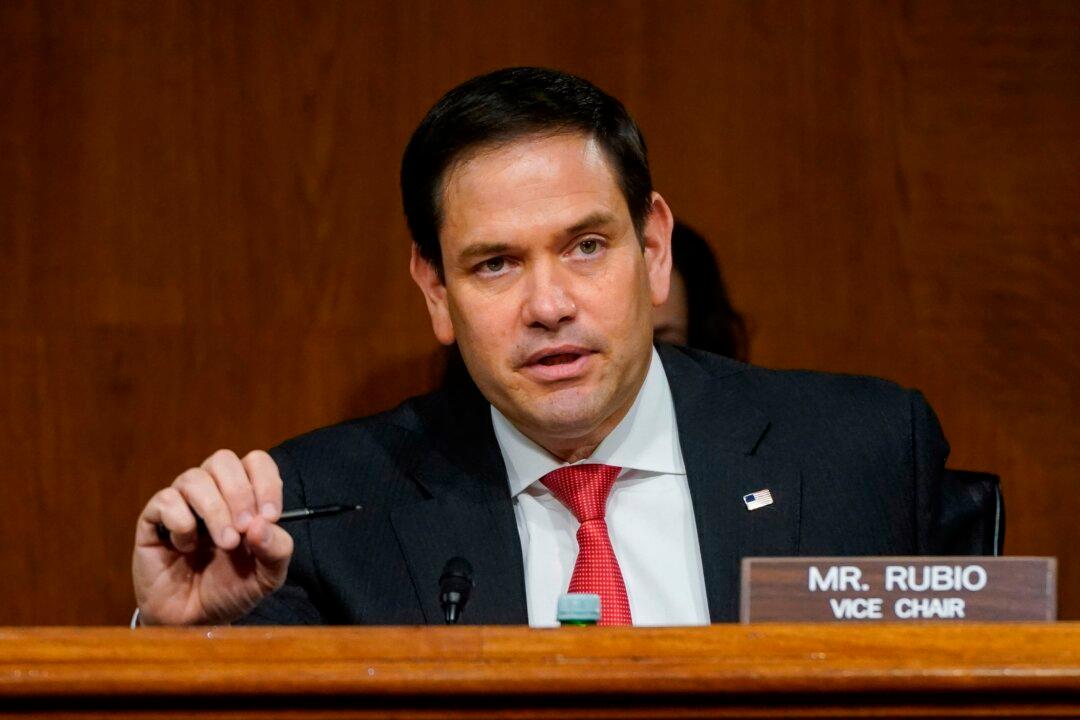Sen. Marco Rubio (R-Fla.) is standing firm in support of an amendment to the National Defense Authorization Act (NDAA) that would ban imports from the Chinese region of Xinjiang, where the Chinese Communist Party (CCP) has long been imprisoning and torturing ethnic Uyghur Muslims in forced labor camps.
The amendment, offered by Rubio, comes amid a larger battle over the NDAA, an annual bill to appropriate funding for national defense and other security considerations.
In the past, Rubio put forward a similar bill to ban imports from the Chinese province of Xinjiang, saying that it must be assumed that all goods from the Uyghur-heavy region were produced through slave labor.
The bill easily passed the Senate by a unanimous vote; But in the House, the bill has languished, and has not been so much as considered.
However, Rubio objected to the motion, demanding that the House pass his bill or that his amendment be added to the NDAA.
“We’ve all heard the stories,” Rubio said on the Senate floor after making his objection. “In China, in the Xinjiang province, Uyghur Muslims are taken from their homes, from their families. They’re forced to work in these factories as slaves; They’re forced to renounce their religion, change their name, forced sterilization, forced abortions.”
Rubio continued, “It’s been characterized—rightly so—as genocide.”
Rubio then turned to his proposed bill to ban imports from the region, which he noted had “bipartisan support.” The bill, he said, determines that “any product that’s made in a [Xinjiang] factory ... has a presumption that it’s made by slaves.”
“It passed the Senate unanimously,” Rubio noted. “It’s sitting over in the House.”
Rubio explained that he was only trying to add the provision to the NDAA because of the House’s inaction.
The House has given its own explanation for this inaction: Under the Constitution, all bills generating revenue must originate in the House.
“The problem I have with that,” Rubio said, “is that they interpret [the clause] very differently from how the Supreme Court has interpreted it.”
The Democratic House interprets the clause “very broadly,” Rubio alleged. “So broadly that they can basically use it on virtually anything. They can just apply it to anything they don’t like.”
“So this really isn’t about revenue-generating,” Rubio opined. “The CBO [Congressional Budget Office] said it’s insignificant, really.”
Rather, Rubio claimed, “This is about the fact that they don’t want this bill to pass over in the House.”
Musing on why House lawmakers would not want the bill to pass, Rubio argued that these lawmakers were acting on behalf of the large multinational corporations who rely on the region’s slave labor.
“Listen, there’s some big companies out there—some very big companies,” Rubio said. “We know that for a time Apple, Nike, a lot of big companies are pushing against [the bill]. They’re not gonna admit it,” the Florida Republican added. “Who’s gonna go out lobbying in favor of slave labor?”
Still, Rubio said, “This is their bottom line. They make a lot of big money by making stuff by people who aren’t paid to make it.”
Senate Majority Leader Chuck Schumer appeared furious with Rubio for the move.
“The irony, the sort of absurdity and sadness of this, is that if his amendment were on the bill it would automatically kill the bill,” Schumer said. “This will be the first time that an NDAA bill has not moved forward, and it falls on the shoulders of one senator.”
Schumer called the situation “sad, tragic, and almost absurd.”
Schumer argued that the proposed measure does generate revenue, impeding on House prerogatives, and is a “poison pill” that could kill the NDAA.
“A presumption that goods made in Xinjiang were made [by] Uyghur slaves doesn’t ‘raise revenue,’” wrote Rubio. “This isn’t a problem [involving the House’s right to originate revenue-generating bills]. It’s a big corporations who benefit from slave labor problem.”





